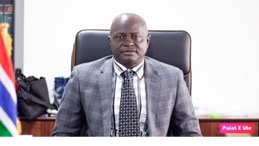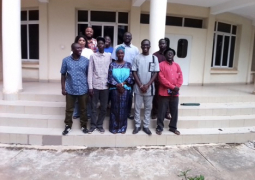
Karamba Touray made this statement at a day’s orientation workshop for the members of the media organised by the National Audit Office (NAO) and held at Metsy hotel.
Touray added that Supreme Audit Institutions are a critical part of the accountability architecture; given their mandate to watch over government accounts, operations and performance, they should be natural partners of citizens in exercising public scrutiny.
According to him, the scope of supreme audit institutions’ work is to increase transparency for the benefit of citizens through external auditing.
“We have identified stakeholder engagements as a strategic priority in our Strategic Development Plan 2020 to 2024. It is our considered view that enhanced stakeholder engagement can lead to greater audit impact, and enables the Supreme Audit Institution in delivering envisaged value and benefits to citizens.”
He added: “Today, we welcome the Fourth Estate as part of our stakeholder engagement programmes, to explain in detail our process and procedures; our standards, methodologies and terminologies to enable you to understand and interpret our reports accurately.”
He explained that the citizens of the country are largest constituent and the media is more accessible to them than audit reports, saying it is therefore important that the National Audit Office engages the media to increase its population reach and ensure accurate dissemination of audit reports.
The International Community, he added, has recognised good governance, including accountability and citizen engagement, as a means to the achievement of Millennium Development Goals (MDGs).
“Sustainable development depends on the effectiveness of public policies and services, underpinned by efficiency and equity in resource generation, allocation and management. It also depends on the effectiveness of oversight institutions that promote transparency and accountability and the strength of public scrutiny to prevent mismanagement and corruption and optimize government performance.”
He noted that citizen engagement can strengthen independent oversight institutions to hold public officials accountable for the use of scarce public resources and for performance of stated objectives.
“Elected and appointed public officials who make decisions and implement them are often subjected to pressures that might conflict with the goal of serving the public interest.”
He described media as important external oversight player due to their capacity to raise the profile of an issue and reach a broad audience.
“For many people, the media are their main source of information and news about the functioning of the government.”





